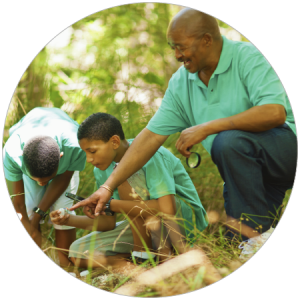RECOMMENDED READING
THE RELATION OF VOLUNTEERING AND SUBSEQUENT CHANGES IN PHYSICAL DISABILITY IN OLDER ADULTS
Dawn C. Carr, Ben Lennox Kail and John W. Rowe
 If you want to reduce your risk of physical disability in later life, we usually think about exercise. But according to this new study by former SCL colleague Dr. Dawn Carr and SCL Advisory Council member Dr. Jack Rowe, starting a new habit of volunteering can improve physical function and lower levels of future disability. Both the intensity of volunteering (low intensity = less than 99 hours/year, high intensity = more than 100 hours/year) and gender had an effect on outcomes.
If you want to reduce your risk of physical disability in later life, we usually think about exercise. But according to this new study by former SCL colleague Dr. Dawn Carr and SCL Advisory Council member Dr. Jack Rowe, starting a new habit of volunteering can improve physical function and lower levels of future disability. Both the intensity of volunteering (low intensity = less than 99 hours/year, high intensity = more than 100 hours/year) and gender had an effect on outcomes.
Overall, this study reports that starting a volunteering habit over the age of 50 is associated with positive physical changes and reduction in disability rates. Compared to non-volunteers, individuals who started low intensity volunteering saw their loss of physical function reduced by 34%, and as much as 63% for those who began high intensity volunteering. For men, only volunteering at the higher intensity resulted in benefits. For women, both the low and high intensity volunteering resulted in similar levels of improved physical function, such that high intensity volunteering did not result in better outcomes than low intensity.
The results of this study suggest that starting a new habit of volunteering about 2 hours a week will limit the progression of physical disability for both men and women. The potential public health and policy implications are great. Employers can encourage volunteerism, offer options and suggestions, and even provide time off to volunteer or bridge a retiring worker into volunteer roles. Health providers can educate patients on the health benefits of volunteering and advise them on how to start. And certainly the recipients of the volunteers’ efforts will benefit as well!
So in case anyone was on the fence about starting volunteering: It is never too late, and it only takes a couple hours a week to make a lasting change to yourself and others!
 This article was recommended by Amy Yotopoulos, Senior Research Scholar and Director of the Mind Division at the Stanford Center on Longevity.
This article was recommended by Amy Yotopoulos, Senior Research Scholar and Director of the Mind Division at the Stanford Center on Longevity.

